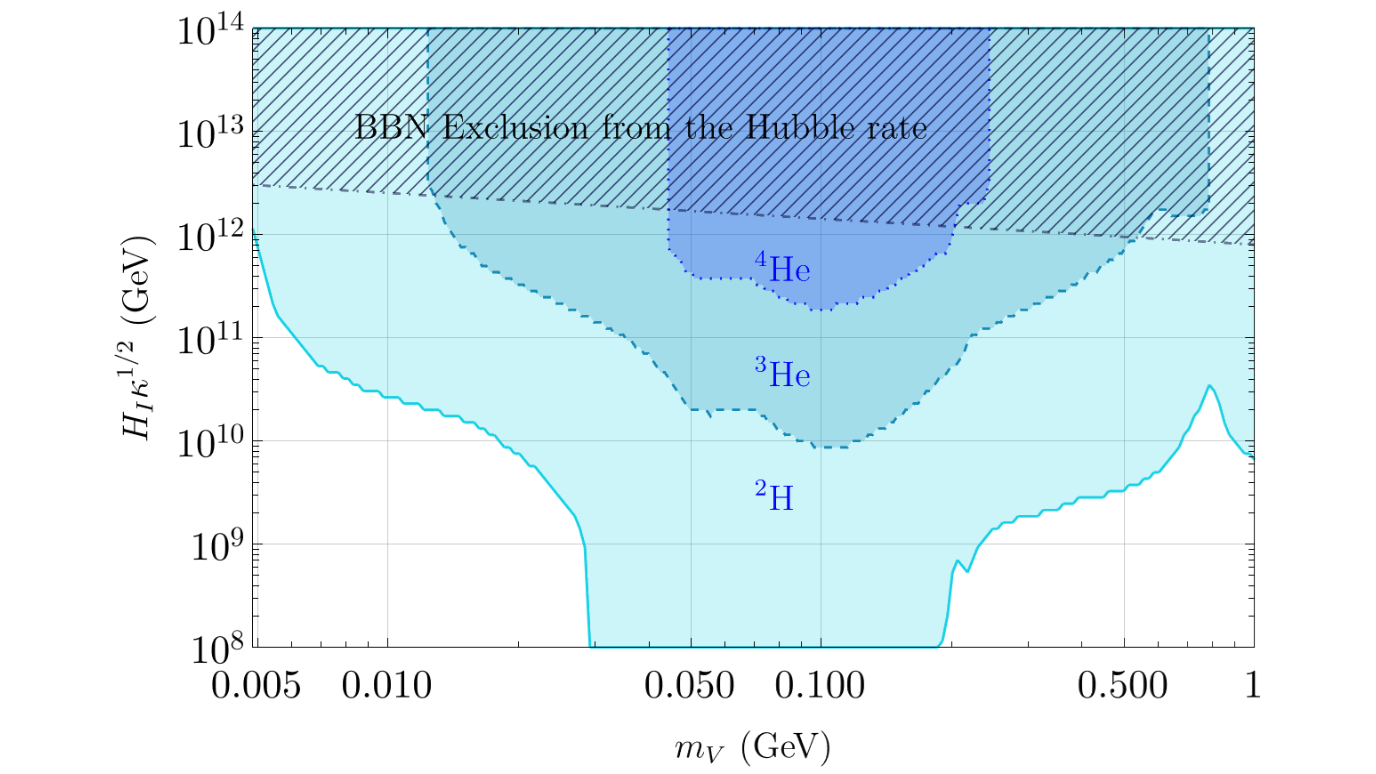Dr Moinul Hussain Rahat (University of Southampton)
Gravitational production of massive particles due to cosmic expansion can be significant during the inflationary and reheating period of the Universe. If the particle also has non-gravitational interactions that do not significantly affect its production, numerous observational probes open up, including cosmological probes. In this talk, I will focus on the gravitational production of light vector bosons that couple feebly to the Standard Model (SM) particles. Due to the very feeble coupling the light vector bosons never reach thermal equilibrium. If the Hubble scale at the end of inflation is above 10^8 GeV, gravitational production can overwhelm thermal production via the freeze-in mechanism by many orders of magnitude. As an example, I will talk about the sub-GeV scale dark photons which couple to the SM only through kinetic mixing. I will derive constraints on the mass and kinetic mixing parameter of the dark photon from the photodisintegration effects on the light element abundances relevant at the end of the BBN.





















